Community Shoe is a band from Cleveland, Ohio. The group’s sound showcases its affinity for innovation as these musicians set out to craft a one-of-a-kind blend of indie-folk, fusion, and progressive elements. Community Shoe’s formula effortlessly merges technical virtuosity with the organic warmth of acoustic instruments and the sophistication of jazz. Yet, hidden within the intricacies of the songs, there lies a raw, emotional core that recalls the immediacy of seminal indie acts such as Broken Social Scene and Bombay Bicycle Club, to name but a few. Still, there isn’t any other band that’s quite in the same ballpark as what Community Shoe set out to accomplish with their kaleidoscopic tone. Community Shoe thrives on breaking the mold and defying conventions, as noted in their most recent releases. These include “Watching the Thinker,” “Take Me with You” (with the enchanting B-side “Untethered Soul”), and the thought-provoking “Teach Me How To Speak.” These songs portray the intimacy of modern indie folk while elevating it with a distinctive twist in terms of song arrangements. Their music resonates with heartfelt emotion yet surprises listeners with beautiful guitar patterns, percussive elements, and left-field ideas that set Community Shoe apart. Moreover, the project actually defines itself as a “Multi-Media Performance Ensemble.” Transcending the usual definition of a band allows them to embrace a much broader artistic canvas, allowing them to seamlessly open up to different ideas and creative endeavors. This music is highly recommended to fans of artists such as Sam Prekop, Grizzly Bear, Nickel Creek, and more.
- Could you tell us about the origins of Community Shoe, and how the band initially came together?
Community Shoe: We actually never intended on forming a band together. We gradually formed out of rehearsal space where a bunch of different musicians would all just hang out and jam together and drink beers and whatnot, and overtime we sort of naturally solidified as a group and started taking our songwriting very seriously. It’s actually kind of funny how serious we take ourselves now, since we came from such a casual jam session hangout environment.
- What inspired the name “Community Shoe,” and does it hold any significance to the band’s identity or philosophy?
Community Shoe: To be honest the name doesn’t mean much of anything. When we were thinking of a name early on, we were just throwing words together; most of the ideas were pretty insincere jokes. But for some reason we liked the name Community Shoe even though it doesn’t mean anything, or at least we just hated less then all of our other terrible band name ideas and then started playing a lot of gigs locally in Cleveland and just forgot to ever change it.
- The band is known for its unique blend of various genres. How do you manage to seamlessly incorporate different musical influences into your compositions?
Community Shoe: We don’t really have to put any effort into that, it just happens naturally for the most part. Everyone in the band is into different music, we share some interests and tastes, but as a whole I would say we all have a completely different idea of what we set out to do as individual musicians. And that just resulted in us having a rather unique sound cause everyone’s bringing their own genre/ tastes to the table simultaneously.
- Could you elaborate on the concept of being a “Multi-Media Performance Ensemble” and how it influences your creative process?
Community Shoe: It’s mainly because of how we use live projections of animations in our live performances. Each song has its own little animation we make ourselves that we project behind us that visually represents the tone or theme of that song in some way. A couple of us in the band are also huge film fans, so that inspired us to express ourselves in a visual way as well. Since we don’t ever stop playing during our sets, and don’t really talk or acknowledge the audience in anyway, we’re just there to display our art, both sonically and visually.
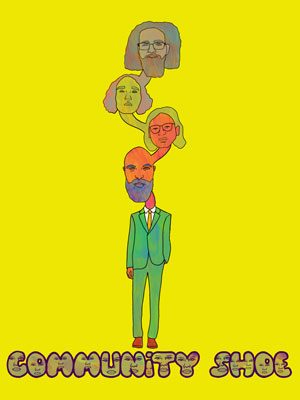
- Your music has been described as having a raw emotional core. How do you ensure that this emotional essence is conveyed to your audience through your performances and recordings?
Community Shoe: I wouldn’t say that we try to make our songs raw or emotional, they just are always that way. We see song writing as a sort of therapeutic process. A way to deal with and try to make sense of personal struggles and utilize those feelings in a productive manner.
- In what ways does the band push the boundaries of conventional music-making, and what challenges have you faced in doing so?
Community Shoe: A pretty obvious example is we play in a lot of odd time signatures, like 5/8, 7/8, and 9/8. Most western music is in 4/4, it’s easy to feel the beat and dance when a band is playing in 4/4. So sometimes audiences who aren’t ready for what we’re doing are confused on how to groove to our music, which we actually just find sort of funny. Cause we see our music as incredibly rhythmic and usually with a driving groove, it’s just an odd groove, to us it is danceable and fun, you just have to let go of your preconceived ideas of what rhythm and groove are.
- Community Shoe has been compared to acts such as Broken Social Scene and Bombay Bicycle Club. How do you feel about these comparisons, and what sets your band apart from these influences?
Community Shoe: I would say those kinds of bands are similar to one aspect of Community Shoe, but were inspired by/ pulling from so many other things that were not even playing the same sport as those kinds of bands in our opinion. But I could see if you just listened to a short moment of some of our songs that someone might think we are similar to those kinds of bands, which is fine. We basically think there’s often so many things happening in our music simultaneously that fans of different kinds of music will latch on to the thing in our music that reminds them of what they like, and not even notice all the other things happening around it that are completely unrelated or comparable. We like to joke around by picking 3 famous artists that have nothing at all in common and saying we sound like a cross between those things. Like “Tool” meets “Joni Mitchell” meets “Jon Coltrane”. This is pretty funny to us, but also pretty accurate.
- What are some of the underlying themes or messages that you aim to communicate through your music, particularly in your recent single releases?
Community Shoe: Our lyrics are basically personal diary entries that often come from a metaphysical or existential state of mind. I don’t think we ever really feel like writing any lyrics when were having a good day, this goes back to the therapeutic thing. “Take You With Me” is about moving to a new city to run away from your past but ultimately just realizing that you yourself are the problem and you will always be you no matter where you go. “Untethered Soul” is about about a deep desire to be a more joyful person, but not really knowing how to. Its sort of about how life is short and passing right by us, and it’s far too easy to just waste it all while being a rather miserable person. “Watching The Thinker” is pretty much about chasing external things to try and solve internal problems, particular love or romance, but ultimately coming to terms with the idea that you aren’t capable of loving others in a healthy way if you don’t love yourself first.
- Can you shed some light on the specific instruments or musical techniques that are integral to the unique sound of Community Shoe?
Community Shoe: So we play acoustic guitar, trumpet, keyboard, electric bass, and drums. 3 of the 4 members of the band are classically trained degreed musicians, so we all have a pretty advanced understanding of our instruments. One of the common techniques that we use that makes our music fairly unique is our use of polyrhythms. It’s pretty common for members of the band to be playing in different time signatures from one another. The easiest way to describe this is one of us could play in 3, and someone else could play in 4, and then we meet back together after 12 beets, cause 3×4 is 12. This comes pretty natural to us and we don’t have to think about it too hard cause we’re all so used to it. Polyrhythms are common in various kinds of world music, like in various kinds of African music, but you don’t hear it a lot from Western musicians.
- The band is known for defying conventions. What are some of the risks you’ve taken in your musical journey, and how have they contributed to your growth as artists?
Community Shoe: Well especially in the local scene that we came out of in Cleveland, most bands/ artists try to write and perform music that’s familiar and easy for audiences to understand and appreciate. It’s easy to get work and gig a lot when the bookers at venues know exactly what you are and know exactly what other artists to pair you with on a concert bill. We’ve taken sort of a long game strategy of sticking to our artistic integrity and refusing to compromise because we believe what we are doing is truly special, even if it makes everything more difficult and slower in regards to getting consistent work, building a fanbase and making money.
- Putting aside any accolades or criticisms that fans, the industry, or the media may afford The Community Shoe Band or the music, is there anything about your project, you think people may overlook, underestimate or misunderstand at all?
Community Shoe: I would say its common for people to overlook or misunderstand the beauty of our music, and just see it as complicated exercise for people who practice a lot. But we don’t really strive to be complicated/ technical, I would say we strive more for beauty and feeling, but because were all accomplished players it seems complicated or technical from an outside perspective, but to us this is just how we play when were being free and expressing ourselves without the typical constraints of more conventional music other bands or projects we have all been a part of in the past.
- Could you share any anecdotes or memorable moments from your live performances that truly encapsulate the essence of what Community Shoe represents?
Community Shoe: Not so much any one particular moment, but more so just the performances where the audiences are truly given us their attention. Were going to give everything we have on stage, so the most beautiful nights are those when the audience gives everything they have, their silence and devoted attention. We’ve never really been interested in being background music for people drinking and talking to their friends. We want to be a band where everyone who comes out to see us is there to experience the arts, and not just to get drunk and have a fun time. We truly believe that the arts matter in a big way. Of course we want to entertain and be fun, but we also feel art has been largely devalued in modern pop culture, and is seen as nothing more than mindless entertainment. But we believe the arts are so much more important than that. So the most memorable moments for us are the ones where it feels like the audience is really there for something more than just getting drunk with their friends.
- Do you feel that your music is giving you back just as much as you put into it, or were you expecting something more, or different in any way?
Community Shoe: Its hard to say. We certainly have put a ton of work into what we do. And its all been kind of a long and slow journey so far in regards to gaining an audience or getting attention. Its not necessarily surprising to us, but we would also like things to move a bit quicker than they have for sure.
- With social media having a heavy impact on our lives and the music business in general, how do you handle criticism, haters and/or naysayers in general? Is it something you pay attention to, or simply ignore?
Community Shoe: I would say we mostly ignore it, we understand that what we do perhaps isn’t for everyone. And in a lot of ways we think that means we’re doing something right. Playing it safe or being middle of the road isn’t interesting to us, so we’re not trying to win over everyone. We only aim to win over our kindred spirits, the weirdos I guess you could say. Were sort of divisive, people either completely get their minds blown from seeing us, or just don’t get it at all, and were happy with that.

- How do you envision your music evolving in the future, considering your diverse influences and genres? Are there any specific directions you are looking to explore in your upcoming projects?
Community Shoe: We want to lean more into using our voices to compose music. Not in a typical singing harmonies kind of way, but more so rhythmically with everyone singing different parts at the same time to create this kind of woven vocal with multiple people all singing different things at the same time. Groups like “Room full of Teeth” and “Tune yards” do this sort of thing, and we really enjoy it.
- What would you consider the successful, proud or significant point in the band’s journey so far?
Community Shoe: Definitely the most pride or success we feel is just in what we do, in the art that we make. Regardless of any particular shows or successes in regards to business or acclaim, when we’re performing at the best of our abilities and its really working, we all feel an incredible amount of pride in what we just did. This feeling that no one else could do what we just did, not because it’s so hard to play or something like that, but because the 4 of us have such a unique musical chemistry that has given birth to this band that none of us even ever imagined. We’re a unique team, and it’s a beautiful thing to be a part of a team that really works.
- If you were forced to choose between creative work in studio environment, or interaction with a live audience? Which of these two options would you choose, and why?
Community Shoe: We would choose live performance over recording without a doubt. We really shine as a live band. We try our best to capture what we do on a recording, but there’s just so much magic in the present moment of a live performance that in our opinion is unrivaled by the recording process.
- Community Shoe is often compared to other notable bands like Broken Social Scene and Bombay Bicycle Club. How do you perceive these comparisons, and how do you differentiate yourselves from these influences to maintain your unique identity?
Community Shoe: I would say those kinds of bands are similar to one aspect of Community Shoe, but were inspired by/ pulling from so many other things that were not even playing the same sport as those kinds of bands in our opinion. But I could see if you just listened to a short moment of some of our songs that someone might think we are similar to those kinds of bands, which is fine. We basically think there’s often so many things happening in our music simultaneously that fans of different kinds of music will latch on to the thing in our music that reminds them of what they like, and not even notice all the other things happening around it that are completely unrelated or comparable. We like to joke around by picking 3 famous artists that have nothing at all in common and saying we sound like a cross between those things. Like “Tool” meets “Joni Mitchell” meets “Jon Coltrane”. This is pretty funny to us, but also pretty accurate.
- The Community Shoe experience is described as nonstop and medley-like. How do you structure your performances to maintain a continuous flow and keep the audience engaged throughout the show?
Community Shoe: We actually put a ton of work and thought into this in rehearsal. We want our performances to be somewhat of a rollercoaster, lots of dynamics, peaks and valleys. We try to keep songs of ours that might be similar in some way apart from one another, so if we’re currently in a chill soft part of the set, the next thing that happens is probably going to be intense by comparison. As far our sets being one big medley where every song is connected and we never stop playing, it just takes a lot of pre-planning in rehearsal. We put about as much effort into connecting 2 songs seamlessly as we do into writing the individual songs. So there’s lots of little transitional instrumental connecting pieces that lead us from where we are to where we need to be for the next song. But we also don’t really look at our live sets as a group of individual songs, but more so as one being thematic experience that often has reoccurring themes. If you heard a melody earlier, you might hear it again later, and this is a very deliberate decision. Because for us were presenting the entire performance as unified whole.
- What do you find most rewarding about what you do? And do you have a specific vision or goal set in your mind that you would like to achieve in the near future?
Community Shoe: The most rewarding thing about what we do is just sticking to our artistic integrity and feel appreciated or understood by an audience. We’ve played shows for a few hundred people, but it didn’t really feel like they got us or appreciated it. And then we’ve played for 20 people who just really got it and loved it and went along for the ride. That to us is more meaningful, playing to the right people. I would say our main goal is to try and really build an audience worldwide that will support and love us. We know they’re out there, sometimes the oddballs are just a little hard to find.
OFFICIAL LINKS:
www.communityshoe.com
https://www.instagram.com/communityshoemusic/
https://www.facebook.com/CommunityShoe
https://www.youtube.com/channel/UCKPZ9ilueZzsqAExZ0vMV6g
https://open.spotify.com/artist/33m1iOFRzNdiliCwSC4ozZ
For Booking Contact:
Brower Entertainment Booking Agency
bookingbrowerentertainment@gmail.com
www.Browerentertainment.com
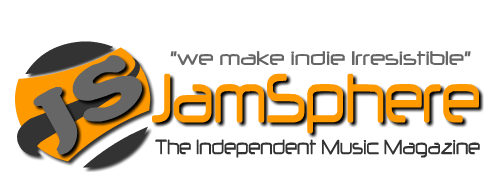
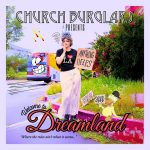
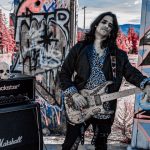

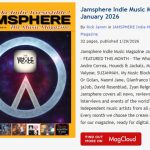
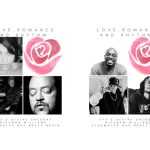

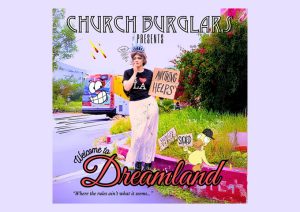
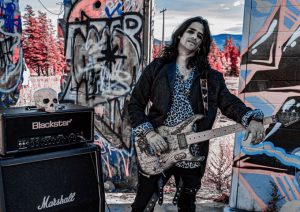
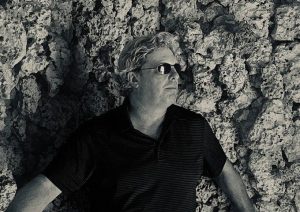
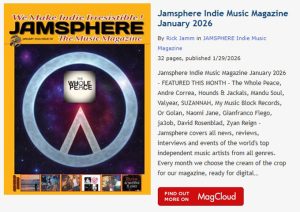
More Stories
“Hay Zeus”, Heavy History: Ty Bru on Legacy, Layers, and Letting Go at 20 Years of MTTS
The Cosmic Factory on 15 Years of Psychedelic Alchemy and the Making of ‘Lab Grown’
Detroit Soul, Modern R&B Elegance: An Interview with Reggie Braxton